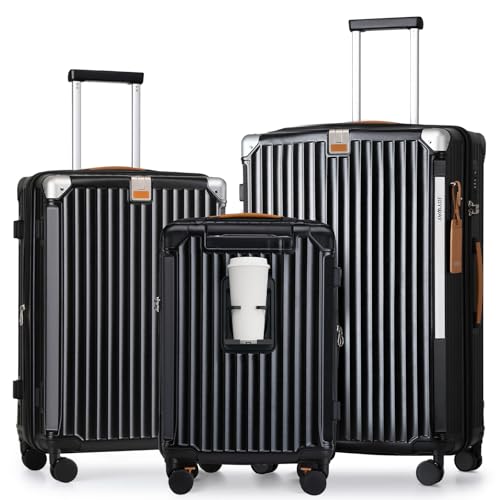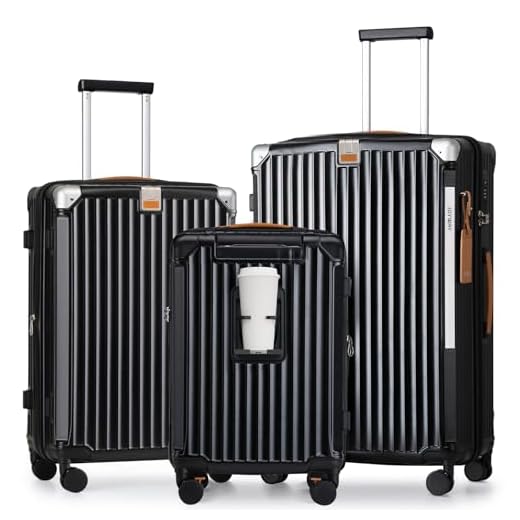Purchase checked baggage through the airline’s website or mobile app right after reservation; online fares for hold allowances are routinely much lower than counter prices and buying on-site frequently costs two to three times more. Typical online options include 10 kg cabin upgrades and 10/20/25 kg hold allowances; small European sectors often show early-booking 20 kg fares from about €25–€60, while airport purchases can exceed €60–€100 depending on route and season.
Timing: most routes allow purchasing extras via Manage Booking up to 2 hours before scheduled departure. Bag drop at the airport usually closes about 40 minutes prior to departure for short-haul flights; after that point, purchase of extra allowance at the desk may be refused or subject to steep penalties. Use the app to confirm the exact deadline for the specific airport on the itinerary.
Weight and fees: pre-purchase the correct allowance rather than risk overweight charges at the airport – airport overweight fees are charged per kilogram or by jumping to the next weight bracket and often exceed pre-book prices. If checked items will exceed purchased allowance, select the higher bracket in advance; most carriers list exact per-route charges in Manage Booking so compare before finalizing.
Practical tips: apply the bag purchase to each separate booking on multi-ticket itineraries; keep electronic receipts and the confirmation code with the boarding pass; measure and weigh items at home with a small scale to avoid surprises. When last-minute needs arise, the website or app usually remains faster and cheaper than airport counters, though availability and deadlines vary by airport–verify specifics on the carrier’s official booking management page.
Post-booking baggage purchase – practical steps
Purchase checked baggage via the airline’s Manage Booking page or official mobile app as soon as additional capacity is needed; online purchases made up to 2 hours before scheduled departure typically cost far less than transactions processed at the airport.
Accepted bag options usually include a free small personal item (40×20×25 cm) and paid products: Priority (adds a second cabin bag up to 10 kg, 55×40×20 cm) and checked-bag slots commonly sold as 10 kg or 20 kg units. Confirm exact dimensions and available weights on the booking reference page for the specific route.
Bag-drop at the airport generally closes 40 minutes before scheduled departure; presentation at the desk after that point may be refused or charged a premium. Overweight or oversize items are charged separately at airport rates, often substantially higher than pre-purchase fees.
| Channel | Deadline | Typical price impact | Action |
|---|---|---|---|
| Manage Booking (website) | Up to 2 hours before departure | Lowest; seasonal/route variation | Enter booking reference → select baggage options → pay online; save confirmation screenshot |
| Official mobile app | Up to 2 hours before departure | Comparable to website | Open booking → purchase bag allowance → store e-receipt |
| Airport check-in / bag-drop desk | Until bag-drop closure (usually 40 min before) | Higher; sometimes double or more vs online | Ask staff to add checked allowance; expect immediate payment and stricter weight checks |
| Call centre | Before airport arrival | May include service fees | Provide booking reference; request baggage purchase and check confirmation email |
When deciding which paid product to select, compare total cost versus packing lighter: online price for a 20 kg checked unit on short European sectors often starts in single-digit euros off-season and rises with demand; airport purchase frequently multiplies that figure. Keep e-receipts accessible and reconfirm bag allowances on the boarding pass to avoid surprises at gate or bag-drop.
Hold-bag purchase deadlines before departure
Purchase hold baggage online up to 2 hours before scheduled departure via Manage Booking on the carrier website or mobile app; this is the cheapest and most reliable option.
Online deadline
Online purchases accepted until 2 hours before scheduled departure. Required details: booking reference and passenger surname. Online check-in closes at the same 2-hour mark; if payment is completed within this window, the hold allowance will be linked to the reservation.
Airport cut-off and on-the-day purchases
At airport check-in counters and bag-drop desks, hold-bag purchases are accepted until the bag-drop cut-off, typically 40 minutes before departure for most short-haul flights. A minority of airports set earlier cut-offs – consult the specific airport page before travel. On-the-day purchases at the airport carry a substantial premium: typical ranges for a single 20kg bag on intra‑Europe sectors are approximately €25–€35 when bought online versus €40–€60 at the airport (rates vary by route and season). Bring the booking confirmation and a payment card; staff will weigh and tag the item at bag drop.
If check-in or bag-drop has closed or the flight has departed, adding a hold item is not possible and the passenger may face refusal to accept the item or excess-weight charges. Best practice: secure hold allowance as early as possible online; if within the 2-hour window, proceed to the airport desk well before the 40-minute cut-off and factor in queue time.
How to increase baggage allowance via the airline website or mobile app
Purchase extra checked or cabin allowance through Manage booking on the carrier site or in the official app; online fares are commonly 30–50% lower than airport counter prices.
Website: step-by-step
- Sign in with booking reference and surname under “Manage booking” or “My bookings”.
- Select the passenger profile to modify and open the “Bags” or “Extras” tab.
- Choose the type (checked bag or priority/cabin entitlement) and select weight option where offered. Each option shows price per passenger and per sector.
- Confirm quantity for each passenger; purchases are applied per flight segment and cannot be transferred between passengers.
- Complete payment via card, PayPal or local wallet; a confirmation email and updated itinerary appear within minutes.
- Print or save the updated booking page / boarding pass showing the purchased allowance; present it at bag drop.
Mobile app: quick workflow
- Open the official app → tap “Bookings” → locate the trip.
- Tap “Manage” then “Bags” or “Extras” and pick the required allowance and weight option.
- Use saved card, Apple/Google Pay or PayPal for faster checkout; a push notification confirms the change.
Operational notes and practical tips:
- Rates differ by route and time; complete purchases well before airport arrival to avoid higher fees at the desk.
- Weights and dimensions are enforced at bag drop; over-weight fees apply and are charged per kilo or fixed overweight rate.
- Refunds for purchased extras are rarely granted; review the fare rules shown at checkout before payment.
- Carry alternatives: consider a robust carry item such as a best fishing tackle backpack if checked allowance is being reduced.
Fees: price differences for purchasing hold baggage online post-booking vs at the airport
Buy checked baggage during the initial reservation or at minimum via the airline website/app before arriving at the terminal; counter purchases at departure frequently cost two to four times more than advance online rates.
Typical online advance-price bands (examples): 10 kg hold bag €8–€35, 20 kg €20–€55. Typical airport-counter bands: 10 kg €40–€80, 20 kg €60–€120. Airport fees often add a flat premium of €25–€70 per bag compared with web/app fares; percentage increases commonly range 100%–400% depending on route and season.
Bundles that include priority boarding plus extra cabin allowance frequently undercut individual counter prices for an equivalent total allowance; compare bundle vs single-bag costs in the Manage Booking section before choosing. Payment method surcharges and route-specific price spikes (peak travel dates, short routes) can widen the gap between online and airport tariffs.
Practical steps: check the exact fare on the carrier’s Manage Booking page immediately after reservation, purchase required weight allowance online rather than at check-in, and print or save confirmation to present at bag drop–this minimizes unexpected counter charges and reduces risk of being required to pay the higher departure-desk rate.
How to purchase hold baggage for another passenger or a group booking with the carrier
Purchase checked-bag allowance under the booking reference via Manage Booking, entering the passenger’s exact surname and completing payment for all travellers in the same transaction to ensure immediate assignment and a single confirmation email.
Required information and practical limits
Mandatory: 6-character booking reference (PNR) and the passenger’s last name as printed on the reservation; flight date and selected route; desired number of pieces per passenger. Reservations held separately require separate transactions. Infant policies differ from standard fares – for infant carrier recommendations consult a best infant hiking backpack.
Step-by-step process
1) Open Manage Booking on the carrier website or mobile app and enter the PNR plus surname; 2) choose the “Bags” option shown next to each listed passenger; 3) select piece quantity and weight option per passenger (system displays available combinations and max per passenger); 4) proceed to payment and keep the booking confirmation e‑mail and updated boarding passes. For party-wide purchases, select every traveller on the same page before completing checkout to avoid multiple transaction fees.
If the interface blocks the transaction: verify exact spelling of the surname, confirm the PNR belongs to the correct flight, then retry with a different payment card supporting 3D Secure. If still blocked, contact the carrier’s reservations team quoting the booking reference and passport details; airline desks at the airport can process purchases but at higher tariffs. For bulky items or home‑tested equipment sizing, compare package dimensions against the carrier limits and test packing with household gear such as the best hardwood floor vacuum cleaner to estimate case size before purchase.
What happens if traveling without pre-booked baggage: excess bag rules and airport charges
Pre-book checked baggage online: airport counter and gate fees are substantially higher and may exceed the online price by 2–4×.
- Immediate procedure at check-in/bag drop: staff will check booking records; if no checked allowance exists the passenger will be offered to purchase one at the desk or at the gate. Payment is required before acceptance of the item.
- Typical price ranges (examples for short-haul European services):
- Online pre-purchase for a 20 kg checked bag: commonly €10–€60 depending on route and timing.
- Airport counter or gate purchase for the same 20 kg allowance: commonly €35–€120.
- Gate-checked cabin item (when cabin allowance exceeded at boarding): commonly €40–€100.
- Overweight and size rules:
- Each checked bag must not exceed the booked weight limit. If the item is heavier than the purchased allowance, staff may require payment of an overweight fee, purchase of an additional checked bag, or redistribution of contents into carry items.
- Overweight charge formats vary by airport: either a per-kilogram rate or a flat fee for the next weight band. Typical overweight examples: a flat surcharge in the €40–€80 band or a per-kg equivalent that makes buying an extra bag cheaper.
- Items exceeding maximum dimensions or declared as hazardous can be refused for carriage and may need separate freight arrangements at passenger expense.
- Operational and travel-impact consequences:
- Late purchases at busy counters cause queue delays and increase risk of missed flights; gate transactions may close before boarding starts.
- If an oversized cabin item is detected at the gate, it will usually be gate-checked with a fee; failure to pay can result in the item being offloaded.
- Receipts for unexpected charges should be retained for any subsequent claims or adjustments through the carrier’s customer service channels.
- Practical mitigation (cost-minimising actions):
- Weigh and measure bags at home and compare against the booking’s baggage allowance.
- Consolidate items into the allowed cabin/checked allocations or wear heavier garments during travel.
- If a purchase at the airport is unavoidable, use the bag-drop desk rather than the gate where possible; desk transactions sometimes allow card/contactless and are marginally faster.








